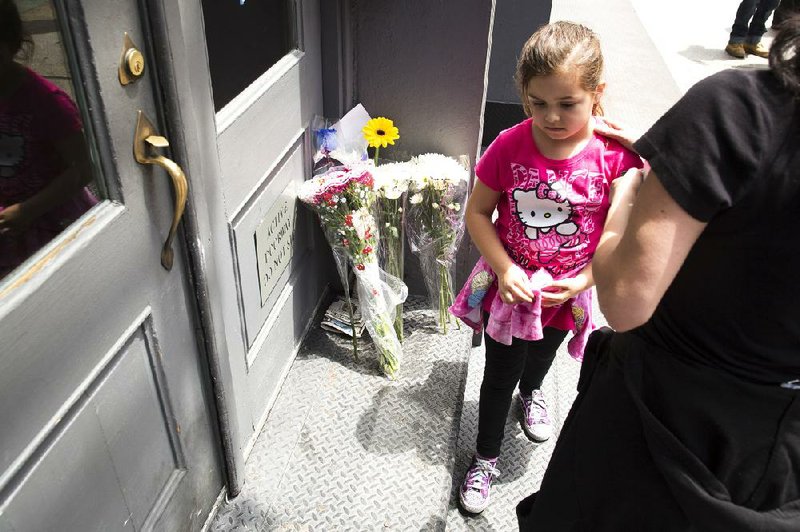NEW YORK — The man accused of killing 6-year-old Etan Patz was hospitalized for fear he might attempt suicide Friday, the 33rd anniversary of the boy’s disappearance, as investigators worked to corroborate the suspect’s confession.
After decades of dead-end leads and false hopes among investigators, Pedro Hernandez was arrested Thursday after telling police he strangled Etan in 1979 when he was an 18-year-old stock boy at a convenience store where Etan waited for his school bus.
Hernandez, 51, of Maple Shade, N.J., was arraigned on murder charges Friday evening by way of video camera from a conference room at Bellevue Hospital, where he was admitted earlier in the day after making comments about wanting to kill himself.
The legal proceeding lasted about four minutes. Hernandez didn’t speak or enter a plea, but his court appointed lawyer, Harvey Fishbein, told the judge that his client was bipolar and schizophrenic and has a “history of hallucinations, both visual and auditory.”
A judge ordered Hernandez held without bail and authorized a psychological examination to see whether he is fit to stand trial.
Etan disappeared May 25, 1979, during his two block walk to his bus stop in Manhattan. The case helped give rise to the national movement to publicize and find missing and abducted youngsters. Etan was one of the first missing children to be pictured on a milk carton.
Hernandez, who emerged as a suspect just days ago, after police received a tip, told investigators he lured the boy into the store with the promise of a soda, then led him to the basement, choked him and put his body in a bag with some trash about a block away, police said.
Authorities never found a body, and Hernandez’s confession put investigators in the unusual position of taking the case to court before they had amassed any physical evidence or had time to fully corroborate his story or investigate his psychiatric condition.
Police spokesman Paul Browne said investigators were retracing garbage truck routes from the late 1970s and trying to decide whether to search landfills for the boy’s remains - a daunting prospect.
Crime-scene investigators also arrived Friday morning at the building in Manhattan’s SoHo section that once held the bodega where Hernandez worked. Authorities were considering excavating the basement for forensic evidence.
They were also looking into whether Hernandez has a history of mental illness or pedophilia.
Browne said letting Hernandez remain free until the investigation was complete was not an option: “There was no way we could release the man who had just confessed to killing Etan Patz.”
Fishbein, as he arrived at the courthouse, asked reporters to be respectful of some of Hernandez’s relatives, including his wife and daughter.
“It’s a tough day. The family is very upset. Please give them some space,” Fishbein said.
Etan’s father, Stanley Patz, avoided journalists gathered outside the family’s Manhattan apartment, the same one the family was living in when his son vanished.
Former Soho resident Roberto Monticello, a filmmaker who was a teenager when Etan disappeared, said he remembered Hernandez as civil but reserved and “pent-up.”
Monticello said Hernandez was one of the few teenagers in the neighborhood who didn’t join in the all out search for Etan, which consumed Soho and the city for months. “He was always around, but he never helped. He never participated,” Monticello said.
Police Commissioner Raymond Kelly said Hernandez gave a detailed confession that led police to believe they had the right man. He also said Hernandez told a relative and others as far back as 1981 that he had “done something bad” and killed a child in New York.
Legal experts said that even though police have a confession in hand, they are likely to work hard to make certain Hernandez isn’t delusional or simply making the story up.
“There’s always a concern whether or not someone is falsely confessing,” said former prosecutor Paul DerOhannesian.
Information for this article was contributed by Julie Walker, Patrick Walters and Michael Virtanen of The Associated Press.
Front Section, Pages 5 on 05/26/2012
